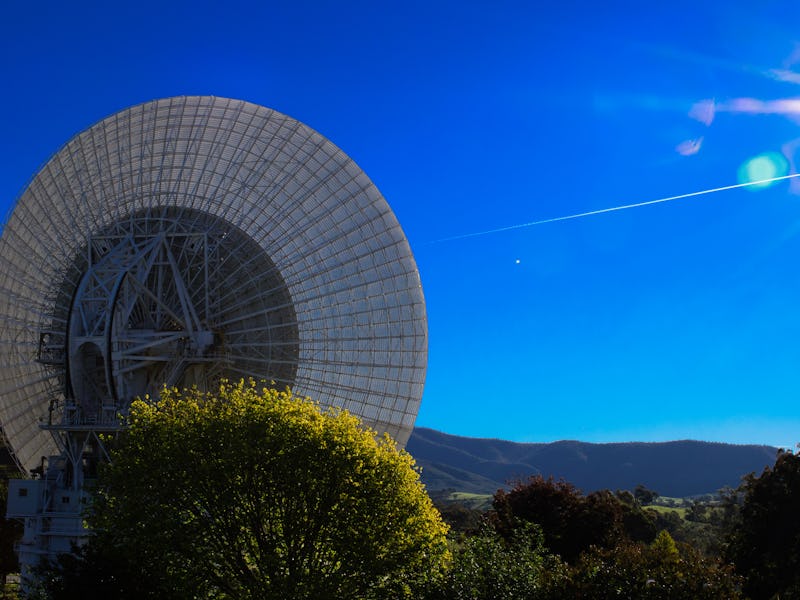Where Do Fast Radio Bursts in Space Come From? New Study Explores
Space is pretty wavy.

Countless bursts of light waves and radiation bombard our planet’s atmosphere everyday and it’s astronomers’ jobs to figure out where they’re all coming from. While there’s still not one specific answer, scientists from the Breakthrough Listen team at University of California, Berkeley have some compelling new ideas.
In a study published in Nature on Thursday, the researchers describe their discovery of the only known repeating fast radio burst (FRB), named FRB 121102. These flashes of radio waves last a split second and were thought to have no physical origin, leading some space enthusiasts — including astronomers on the team at Berkeley — to wonder whether or not this could be a sign of extraterrestrial life.
Sadly, FRB 121102 wasn’t aliens. But it was still still pretty damn cool.
Using the Arecibo Observatory in Puerto Rico and the Green Bank Telescope in West Virginia, the team was able to analyze data from 16 bursts of FRB 121102. They found that the burst of radio waves unleash an unprecedented amount of energy every millisecond, equivalent to what our sun releases in a day.
They were also able to detect that the waves from this intergalactic phenomenon were extremely polarized or twisted. This high level of polarization is known as Faraday rotation and only occurs when waves pass through an incredibly strong magnetic field.
“I couldn’t believe my eyes when I first saw the data. Such extreme Faraday rotation is extremely rare,” Jason Hessels, the study’s co-lead author, said in a statement.
Since these high levels of high energy release and extreme Faraday rotation can only occur in extremely violent pockets of space, FRB 121102 is coming from either the origin on a neutron star — the collapsed core of a large star — or near a black hole.
While these sources seem to be the most likely culprits, the scientists involved in the study aren’t ruling anything out, even aliens.
“We can not rule out completely the ET hypothesis for the FRBs in general,” UC Berkeley postdoctoral fellow Vishal Gajja told CNN.
Hopefully, more research into FRBs will finally reveal we’re they’re coming from. Fingers crossed it’s aliens trying to text us.